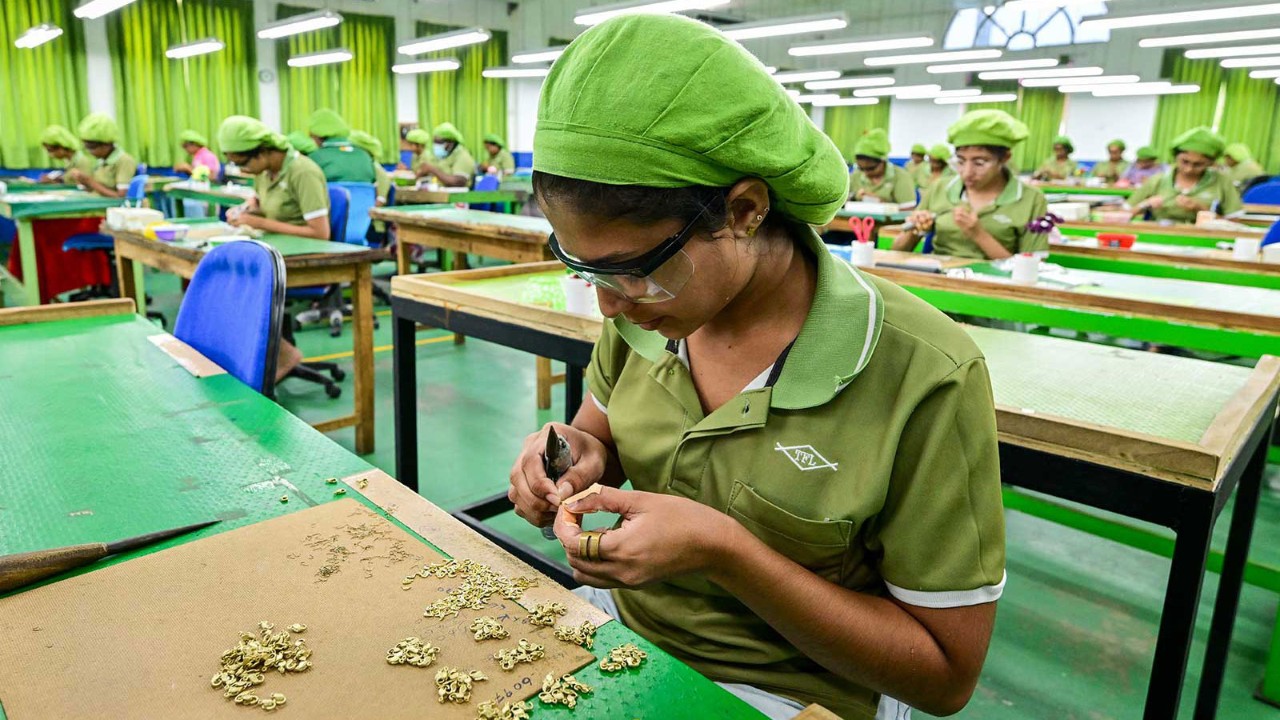
Accountants in South Asia are leveraging their expertise and experience to help clients deal with the switchback tariff policies of US president Donald Trump, which have been particularly impactful in the region.
Trump announced on his so-called ‘Liberation Day’ on 2 April that India would face a 26% universal tariff on goods exported to the US; Bangladesh 37%; Pakistan 29% and Sri Lanka 44%; while Nepal, Bhutan and Maldives were given baseline 10% tariffs.
‘It is a golden opportunity for accountants to grow their practice, especially the Big Four’
Following Trump’s partial U-turn on 9 April, 10% rates remain in place until 9 July for all South Asian countries, while the higher rates are suspended until then, pending trade negotiations with Washington.
Challenge and opportunity
While these changes and charges inevitably pose challenges for South Asian exporters, Harinderjit Singh, former partner at Price Waterhouse India, says accountants can thrive on the complexities posed by the tariff wars: ‘It is a golden opportunity for them to grow their practice, especially the Big Four, who have expertise in transfer pricing, trade policy, tax and auditing.’
The support required by exporting clients includes regulatory compliance, integrating new trade regulations into IT systems, finding alternative supply chains, plus financial hedging and cost benefit analysis, adds Navin Agrawal, partner at KPMG India. ‘We are reaching out and educating our clients, giving them pointers and various scenarios.’
Accountants can also help clients reform and better integrate their enterprise resource planning (ERP) systems within clients, ensuring these are made more flexible to incorporate regular changes in cost structure generated by shifting tariffs for different countries and different sectors, adds Agrawal.
Contingency planning
Singh says accounting firms should currently be advising exporters within India’s US$435bn (projected for financial year 2024-25) goods export sector on operational continuity contingency plans. This would protect cashflow, deal with supply chain disruption and support renegotiations of prices with the client suppliers.
‘First you have to look at your costs, then transfer pricing as an impact on taxation, and then from the board level you have to revisit your overall strategy,’ he says.
Emphasising the seriousness of the situation, Singh warns that should tariffs cause US importers to breach agreements to receive ordered Indian goods, some companies’ inventories could lose value, which would have to be reflected in their accounts. He warns this could be a ‘death knell for a company’ if they ‘operate on razor-thin margins’.
‘Without corrective actions, a company may not exist come tomorrow’
Given the suddenness of tariff changes, ‘businesses must be prepared with contingency plans immediately,’ says Singh. ‘Without corrective actions, a company may not exist come tomorrow.’
And while the Indian government is hoping that it will ultimately keep the US tariffs down to 10% or negotiate them away, key export industries, such as gems and jewellery, textiles, electronics and machine tools, are still very vulnerable, says Agrawal.
Meanwhile, Gulzar Didwania, Deloitte India partner and global trade advisory leader, stresses that companies need to get across the detail of the tariff regulations and threats. ‘Companies need to evaluate how these apply to their specific business models and how different orders might affect them in distinct ways,’ he says. ‘How much is the supplier ready to bear, how much is the customer ready to share and how much can they pass through the supply chain?’
In Bangladesh, Sami Uddin Rony, a senior audit associate at Deloitte Bangladesh, highlights how Trump’s tariff moves have harmed the country’s key export sector – ready-made garments (which accounted for 81.82% of exports in 2023, according to the Bangladesh Bank). He says the policy shift has caused ‘significant disruptions in supply chains, pricing strategies and market access’.
Demanding job
Uncertainty over tariff rates has also made the accountant’s jobs more difficult. ‘Financial reporting and planning have become much more challenging,’ says Sami. ‘Accountants frequently need to recalculate budgets, cost of goods sold, and projected earnings due to fluctuating import and export costs… making long-term financial planning and compliance efforts more volatile and time-consuming.’
Prawma Khan FCCA, country manager, ACCA Bangladesh, stresses the need for accountants to help their clients with data-driven decision-making, scenario analysis and risk assessment, especially for industries like garments, with complex value chains.
‘Local firms will definitely be impacted negatively by any rise of duties in an exporting country’
Accountants must help businesses explore new markets and adapt to long-term strategies. ‘This is a stress test for Bangladesh’s trade resilience,’ says Khan, who urges the profession to remain flexible and proactive in guiding clients through these fast-changing policies.
Stay positive
At the business end, chartered accountant Abu Zafar Mahmud, owner of Trade Vision, a Lahore import and sourcing company, says Pakistan accountants will have to work hard on reporting the actual price of goods sold/exported, which may change.
He says accountants – external and in-house – will need to develop cost-cutting proposals to reduce prices of export goods and boost competitiveness on tariffed items. Accountants should, therefore, explore the financial benefits of adopting new production technologies.
Where possible, exporters should take a positive approach and boost their overall turnover, including in export markets. ‘That’s how any business entity could decrease the variable and semi-variable costs of goods manufactured,’ he says.
Ultimately, the US tariffs, if they remain in force, are unwelcome news, says Abu. ‘Local firms will definitely be impacted negatively by any rise of duties in an exporting country.’ All business sectors, except those operating in protected markets and those with a dominant position in a segment, will ‘always be affected badly by the imposition of tariffs’.
More information
Visit ACCA’s tariff insights page for perspectives and resources.



